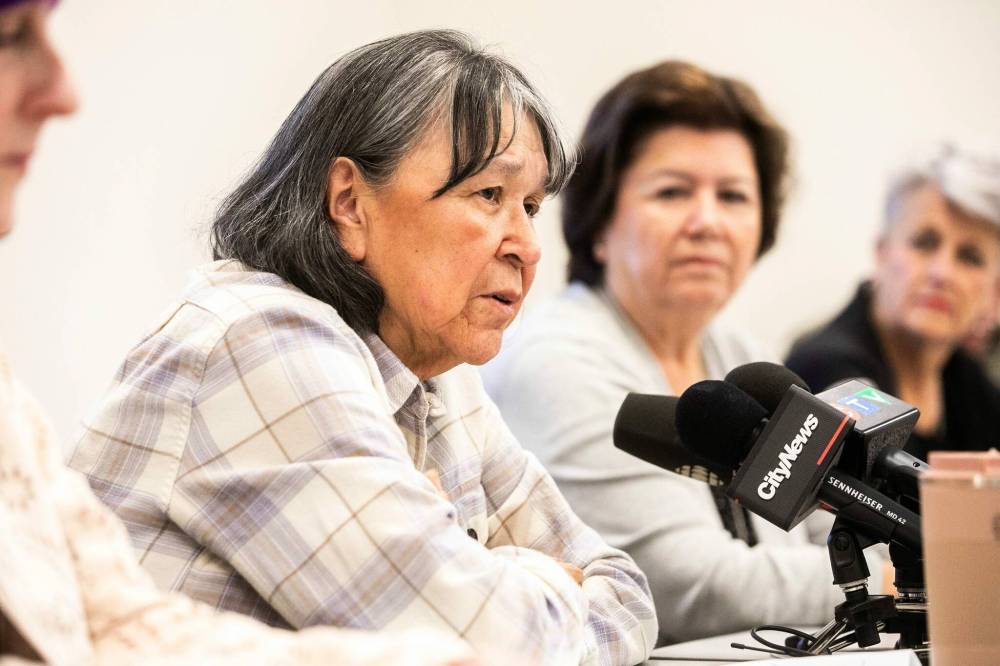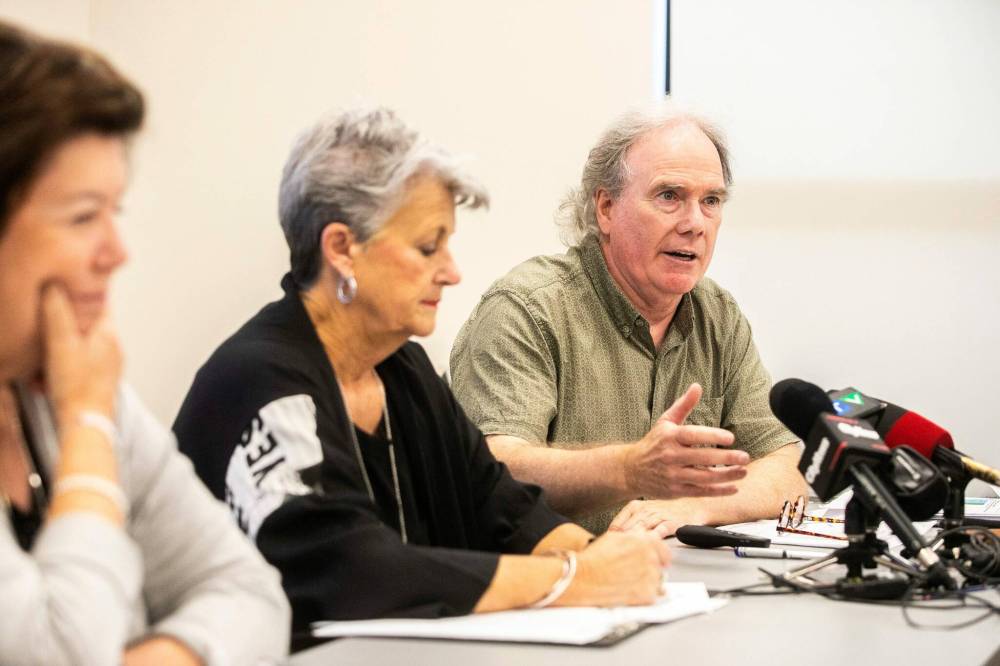Housing review, service fixes top priority list presented to incoming seniors advocate
Advertisement
Read this article for free:
or
Already have an account? Log in here »
To continue reading, please subscribe:
Monthly Digital Subscription
$0 for the first 4 weeks*
- Enjoy unlimited reading on winnipegfreepress.com
- Read the E-Edition, our digital replica newspaper
- Access News Break, our award-winning app
- Play interactive puzzles
*No charge for 4 weeks then price increases to the regular rate of $19.00 plus GST every four weeks. Offer available to new and qualified returning subscribers only. Cancel any time.
Monthly Digital Subscription
$4.75/week*
- Enjoy unlimited reading on winnipegfreepress.com
- Read the E-Edition, our digital replica newspaper
- Access News Break, our award-winning app
- Play interactive puzzles
*Billed as $19 plus GST every four weeks. Cancel any time.
To continue reading, please subscribe:
Add Free Press access to your Brandon Sun subscription for only an additional
$1 for the first 4 weeks*
*Your next subscription payment will increase by $1.00 and you will be charged $16.99 plus GST for four weeks. After four weeks, your payment will increase to $23.99 plus GST every four weeks.
Read unlimited articles for free today:
or
Already have an account? Log in here »
More seniors will end up homeless if the province doesn’t address the need for affordable assisted living for Manitobans living on less than $2,000 a month, says a coalition of seniors organizations.
“A lot more of our seniors, our relatives, are landing on the street and being homeless,” said Kathy Mallett, with the Manitoba Seniors Equity Action Coalition, at a news conference Monday. “I think that it’s getting worse as each year goes by.”
Mallett was one of several speakers at Merchants Corner on Selkirk Avenue who presented a priority list for the Office of the Seniors Advocate that’s expected to open Nov. 1. Mallett wants to see a review of housing and care options for seniors who can’t afford the $3,000 to $6,000 charged by the private sector for assisted and supportive living.
“I’ve lived in this city for well over 75 years, and I’ve never seen it that bad before,” she said.
MIKAELA MACKENZIE / FREE PRESS Kathy Mallett was one of several speakers at Merchants Corner on Selkirk Avenue who presented a priority list for the Office of the Seniors Advocate that’s expected to open Nov. 1.
The Nov. 5 street census, led by End Homelessness Winnipeg, found of the 2,469 homeless people counted, 25 per cent were over 50 years old and 22 per cent were between the ages of 16 and 29.
Mallett, a Fisher River Cree Nation member and lifelong Winnipeg resident, noted that the street census found 79.9 per cent of those homeless are Indigenous.
“They can’t afford a lot of the space that’s there now, and a lot of them are living in shelters. It’s a shame. That’s what’s happening right now.”
The province has identified the private sector as the primary provider for assisted living, Mallett told reporters. Seniors who rely on Old Age Security and the Guaranteed Income Supplement have less than $2,000 a month and can’t afford it, she said.
“We believe there needs to be a continuum of rent-geared-to-income (seniors housing) which includes independent living, assisted living and supportive housing in order to prevent premature entry into the long-term care system,” said Mallett.
The coalition wants the seniors advocate to review the supply and cost of independent living, assisted living and supportive housing, as well as the gaps in and barriers to those services, she said.
Whoever assumes the role should replicate a study by the B.C. seniors advocate, said coalition member Tom Simms. Its 2023 findings in the report A Billion Reasons to Care show how money that’s spent in long-term care directly impacts the quality of life for residents, he said.
“What the review found was some disturbing findings,” Simms said.
MIKAELA MACKENZIE / FREE PRESS Whoever assumes the role should replicate a study by the B.C. seniors advocate, said coalition member Tom Simms.
Non-profit, long-term care facilities spent 25 per cent more per resident on direct care as compared to for-profit facilities, for example. A comparative review conducted after the B.C. government increased funding for contracted long-term care facilities by 35 per cent was also telling, Simms said. It found not-for-profit facilities delivered more hours of care than they were funded to deliver, while for-profit facilities delivered less.
Research is needed by Manitoba’s seniors advocate to “move beyond anecdotal stories about some of the challenges, and that we have evidence-based data to make decisions about how we better meet the needs of older adults that are in long-term care,” Simms said.
Home care also needs to go under the microscope, said Sandra Oakley, vice-president of the Manitoba Federation of Union Retirees.
“We’ve all seen harmful stories experienced by individuals within the home-care system highlighted in the media on a regular basis,” Oakley said.
“Home-care system funding and supports need to be improved to strengthen the capacity and the resources of home-care services to support older adults to age in place,” she said.
Manitoba’s seniors advocate must ensure that all seniors’ voices in the province are heard, said Marnie Strath, chair of the Canadian Association of Retired Persons Manitoba chapter.
“We feel the new seniors advocate should establish an advisory council that is representatives of older adults through the province, including representatives from equity groups,” said Strath, who noted the majority of Manitoba members live in rural areas. The advisers would help the advocate with initial and ongoing priorities, speak up on behalf of equity and regional needs and conduct regular reviews of the impact and outcomes of the seniors advocate office, she said.
A spokesperson for Health Minister Uzoma Asagwara said the seniors advocate will consult with seniors groups and listen to seniors and their families.
“Their job is to be seniors’ voice recommendation to government,” the spokesperson said.
carol.sanders@freepress.mb.ca

Carol Sanders
Legislature reporter
Carol Sanders is a reporter at the Free Press legislature bureau. The former general assignment reporter and copy editor joined the paper in 1997. Read more about Carol.
Every piece of reporting Carol produces is reviewed by an editing team before it is posted online or published in print — part of the Free Press‘s tradition, since 1872, of producing reliable independent journalism. Read more about Free Press’s history and mandate, and learn how our newsroom operates.
Our newsroom depends on a growing audience of readers to power our journalism. If you are not a paid reader, please consider becoming a subscriber.
Our newsroom depends on its audience of readers to power our journalism. Thank you for your support.
History
Updated on Monday, September 22, 2025 7:14 PM CDT: Adds statement from health minister Uzoma Asagwara





